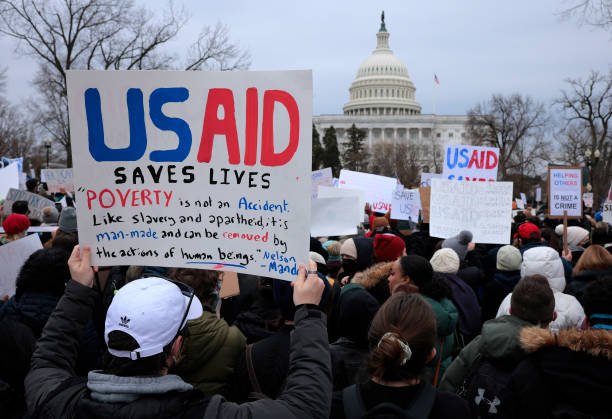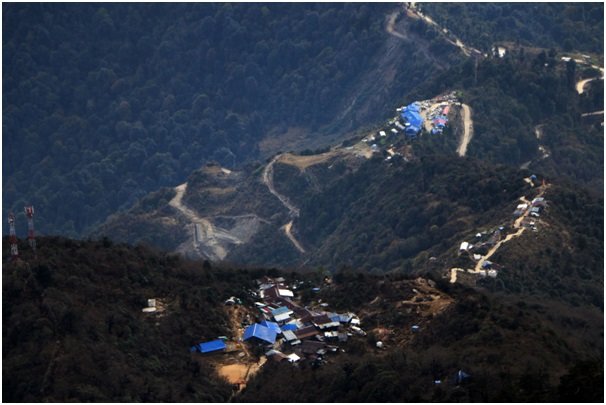Enhancement of Diplomatic Mission is necessary
In the realm of International affairs, diplomatic missions play a crucial role in fostering relations between nations, promoting cooperation, and advancing national interests on a global scale. However, the dynamic nature of geopolitics and the evolving challenges of the 21st century necessitate a constant enhancement of diplomatic missions. This article explores the present situation of Nepal's diplomatic mission, why it is important, the benefits of having a greater presence, and the positions of other countries, and provides suggestions and conclusions.
Why is Diplomatic presence important?
Currently, Nepal maintains embassies in 30 countries. Nepal has three United Nations missions: New York (USA), Vienna (Austria), and Geneva (Switzerland). The Consulate General of Nepal is located in seven cities, namely New York (USA), Chengdu, Lhasa, Guangzhou (China), Jeddah (Saudi Arabia), Hong Kong, and Kolkata (India). So far, Nepal has expanded its diplomatic relations with 181 countries. BP established diplomatic relations with 16 countries during his prime ministership, and with 29 countries during the reign of King Mahendra. It appears that diplomatic relations with 43 countries were established during the reign of King Birendra. As a result of the astute diplomacy of BP, Mahendra, and Birendra, Nepal became a temporary member of the United Nations in 1969-70 and 1988-89.
Sadly, Nepal failed in 2006. The reasons for this were political instability and, secondly, the carelessness shown by the leadership at that time in the field of diplomacy. The government has now announced Nepal's candidacy for the 2037-2038 term from the Asia-Pacific region. Currently, there are temporary United Nations member countries with smaller populations than Nepal, with the exception of Japan.
Japan, Ecuador, Malta, Mozambique, and Switzerland have already secured their positions. When we consider the diplomatic influence of all these countries, it appears to be greater than that of Nepal. Therefore, it is necessary to take this matter seriously. By expanding embassies and increasing the number of career diplomats, Nepal's influence in the international arena will be enhanced.
Benefits of expanding diplomatic Mission
The benefits of expanding the diplomatic sphere are immeasurable. Increasing diplomatic relations allows for the expansion of foreign aid and cooperation with relevant countries through the art of diplomacy. Similarly, it promotes the exchange of knowledge and facilitates access to the international trade market. It also encourages cooperation for development and expands the scope of economic diplomacy. By fostering intimacy and cordiality, it has the potential to increase the number of tourists from respective countries, leading to an increase in foreign currency. Moreover, it facilitates cooperation between countries in areas such as education, health, and infrastructure.
Active engagement in environmental protection and climate diplomacy is crucial for self-representation. By increasing climate diplomacy, support from the international community can be garnered. This cooperation can be utilized for development purposes. Additionally, visiting other countries to showcase Nepal's natural beauty, culture, customs, and behavior can help expand soft power. Demonstrating progress in terms of human rights can also build trust. Furthermore, creating an environment for cooperation and exchange between universities in different countries can lead to transformative changes in Nepal's education sector. Recently, Australia's Assistant Foreign Minister visited Kathmandu University, highlighting the potential for such collaborations. By customizing events and situations to align with global trends, bargaining power, and capacity can be enhanced.
Other Countries Status
Nepalis have managed to reach 172 countries, which is a remarkable achievement. Every day, approximately 2000 Nepalis travel to different countries. However, many Nepali people face significant challenges due to the lack of embassies in numerous countries. In case of emergencies or unforeseen circumstances, Nepal often relies on other countries for assistance and rescue. Recently, employees of the foreign affairs department traveled to Lisbon, Portugal, and returned after completing their work on visas. It is worth noting that Rwanda, a country with a smaller population than Nepal, has 40 embassies, while Nepal has embassies in only 8 European countries.
The United Arab Emirates (UAE), a country rich in oil but with a small population, has established embassies in more than 100 countries, showcasing its extensive diplomatic reach. Similarly, neighboring country Sri Lanka has expanded its diplomatic capacity to encompass 49 countries. Notably, Sri Lanka maintains embassies in 45 countries, including conflict-ridden nations such as Syria. North Korea, despite its limited global engagement, has established embassies in more than 45 countries, including Nepal. In comparison, considering the population of Nepal and the significant number of young individuals seeking employment opportunities abroad, Nepal's presence outside the country is relatively small.
Some suggestions
According to NRN (Non-Resident Nepali) estimates, around 7 million Nepalis are believed to be residing outside the country. On November 21, 2075, a decision was made at the foreign minister level, under the coordination of Rudra Nepal, to review and reduce the number of missions abroad. The task force has recommended augmenting diplomatic staff in embassies located in India, China, the United States, Germany, Austria, and France. The efficiency of the Nepali Embassy in Moscow, Russia, has also been flagged, with a recommendation to improve its performance. Additionally, the task force has called for SAARC member countries to establish embassies in Bhutan, Maldives, and Afghanistan. Furthermore, the recommendation includes the addition of a Consulate General in Mumbai and Visakhapatnam.
The proposal suggests the removal of embassies in Denmark, Spain, South Africa, and Canada, while adding embassies in Turkey, Indonesia, Kenya, Italy, and Singapore. However, it has been observed that this proposal lacks sufficient research. It is important to note that the Nepali community in Canada is growing, and Canada is currently a member of both the G7 and G20. Additionally, having only four consulates in China appears inadequate considering the significant size and importance of China in global affairs.
India, despite having embassies in more than 120 countries, has received a request from its parliament to increase the number further. In Nepal, the number of embassies was 24 until 063, which increased to 30 embassies, 3 permanent missions, and 7 consulate generals by 080. However, these numbers remain relatively low.
Conclusion
The MOFA Secretariat acknowledges a pressing issue: Nepali Embassies abroad are struggling to fulfill their vital responsibilities due to a shortage of manpower. Diligent diplomats find themselves toiling tirelessly, bereft of leisure time, unable to devote themselves fully to promoting Economic Diplomacy and establishing a formidable presence. As our Nepali embassies possess limited capacities, it becomes imperative to envision and enhance their structures for the future. Indeed, we can observe that nations like Nepal, which send their citizens abroad for employment, boast greater capabilities than our own. The infrastructure of these countries surpasses that of Nepal, accentuating the need for transformative development.
An exemplary instance of this predicament can be found in the Nepali Embassy in Cairo, Egypt, representing a staggering 13 nations across Africa and West Asia. It is, therefore, of paramount importance for Nepal to showcase its preparedness by augmenting the presence of diplomats within embassies and foreign affairs. Diplomacy, when wielded effectively, becomes a potent instrument for national progress, with a particular emphasis on prioritizing economic and climate diplomacy while fortifying our external influence.






Leave Comment